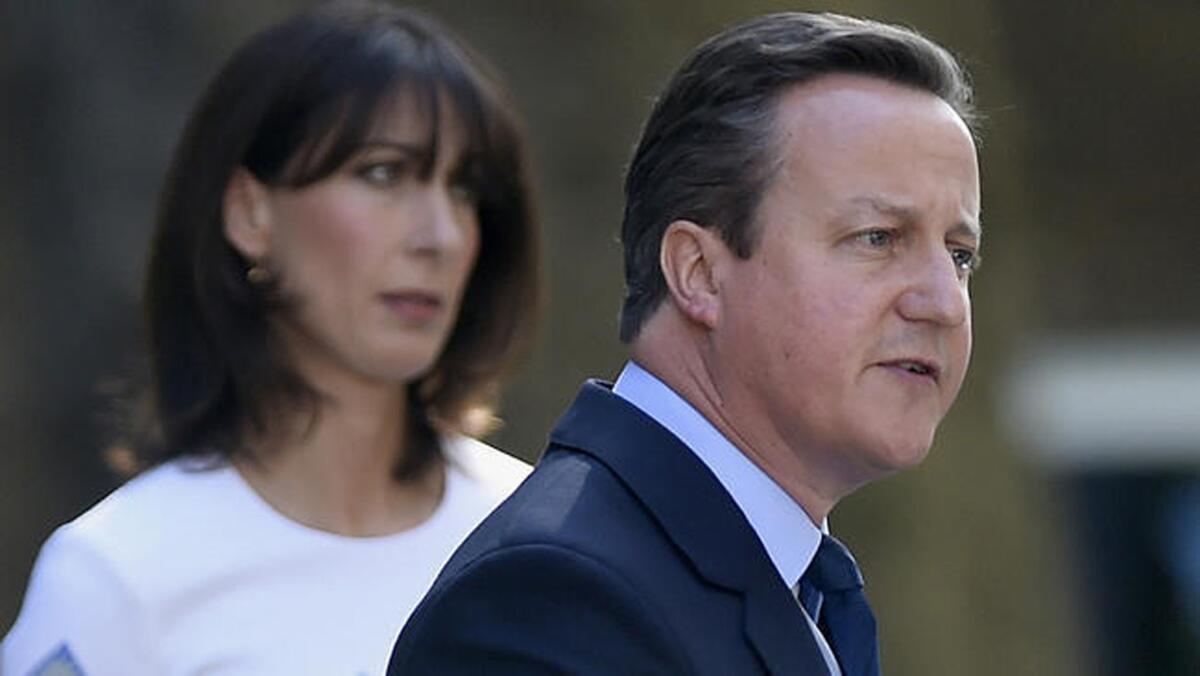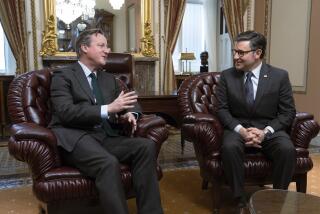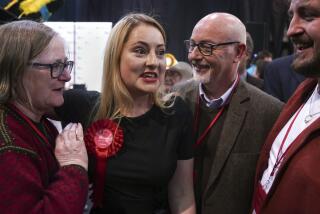Opinion: The ‘Brexit’ blunder continues to bedevil Britain

British Prime Minister Theresa May called a snap election for Parliament almost three years early so that the United Kingdom would have “strong and stable” leadership to negotiate the terms of “Brexit,” its withdrawal from the European Union approved by voters in a referendum nearly a year ago. Instead, May emerged from Thursday’s election having lost her Conservative majority in the House of Commons and forced to try to cobble together a minority government with the help of a party from Northern Ireland. By Saturday, there were reports that she might even be ousted as prime minister by her party.
Call it the curse of Brexit. As many Britons who voted “Leave” have come to realize, Brexit was a political Pandora’s box.
May’s Conservative Party won 318 seats in the 650-seat House of Commons compared to 330 seats in 2015. The Labor Party increased its representation from 232 to 261. On Friday, May announced that she would form a new government with the support of the Democratic Unionist Party, which was founded by Protestant firebrand Ian Paisley and which in the past has shared power with Sinn Fein, the longtime political wing of the Irish Republican Army, in Northern Ireland.
If May was right that her party’s narrow majority impaired her ability to negotiate optimal terms for withdrawal from the EU, it’s hard to see how she (or another Conservative prime minister) wouldn’t be at an even greater disadvantage negotiating on behalf of a minority government.
May’s miscalculation in calling this election harks back to an earlier blunder by her immediate predecessor: former Prime Minister David Cameron and his decision to hold a referendum on “Brexit” in the first place.
Cameron assumed that the British voters would ratify Britain’s continued membership in the EU and thus allow him to silence so-called Euroskeptics within his own party. May, who after (mildly) opposing Brexit in the referendum accepted the verdict of the voters, thought that by holding an early election she could strengthen her ability to secure a definitive divorce from the EU on terms favorable to the U.K., a so-called “hard Brexit.” It was a huge miscalculation.
Ironically, although while Brexit was a key factor in the timing of this election, it didn’t dominate the campaign. May emphasized toughness on terrorism, especially after recent attacks in Manchester and London, but proved to be an uninspiring campaigner who refused to take part in televised debates with her opponents. Jeremy Corbyn, the Labor Party leader often dismissed (even by many in his own party) as an ineffectual ideologue, galvanized younger and working-class voters with an egalitarian message of “For the Many, Not the Few.”
But neither May nor Corbyn would have been campaigning if Cameron hadn’t promised to put Brexit on the ballot and then followed through with legislation to redeem that pledge. Instead, Cameron still would be prime minister, presiding over a majority government (however narrow) of a United Kingdom that was still part of Europe.
Follow the Opinion section on Twitter @latimesopinion and Facebook
More to Read
A cure for the common opinion
Get thought-provoking perspectives with our weekly newsletter.
You may occasionally receive promotional content from the Los Angeles Times.







